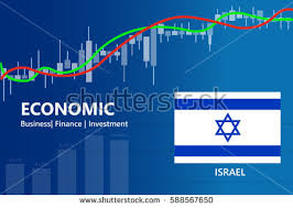
Economy – כלכלה
The economy of Israel is technologically advanced by global standards. As of 2015, Israel ranks in the top 20 nations in the world on the UN's Human Development Index, which places it in the category which places it in the category of "Very Highly Developed", allowing the country to enjoy a higher standard of living than many other Western countries. The prosperity of Israel's advanced economy allows the country to have a sophisticated welfare state, a modern infrastructure, and a high-technology sector competitively on par with Silicon Valley. Israel has the second-largest number of startup companies in the world after the United States, and the third-largest number of NASDAQ-listed companies after the U.S. and China. Intel, Microsoft, and Apple built their first overseas research and development facilities in Israel, and other high-tech multi-national corporations, such as IBM, Google, HP, Cisco Systems, Facebook and Motorola have opened R&D centres in the country.
The country's major economic sectors are high-technology and industrial manufacturing; the Israeli diamond industry is one of the world's centers for diamond cutting and polishing, amounting to 23.2% of all exports. Relatively poor in natural resources, Israel depends on imports of petroleum, raw materials, wheat, motor vehicles, uncut diamonds and production inputs, though the country's nearly total reliance on energy imports may change with recent discoveries of large natural gas reserves off its coast on the one hand and the leading role of the Israeli solar energy industry on the other. ... Wikipedia
Strong trade and investment ties outside of the Middle East insulate Israel’s technologically advanced free-market economy from regional political instability.
Trade is significant for Israel’s economy; the combined value of exports and imports equals 57 percent of GDP.
The economy of Israel is technologically advanced by global standards. As of 2015, Israel ranks in the top 20 nations in the world on the UN's Human Development Index, which places it in the category which places it in the category of "Very Highly Developed", allowing the country to enjoy a higher standard of living than many other Western countries. The prosperity of Israel's advanced economy allows the country to have a sophisticated welfare state, a modern infrastructure, and a high-technology sector competitively on par with Silicon Valley. Israel has the second-largest number of startup companies in the world after the United States, and the third-largest number of NASDAQ-listed companies after the U.S. and China. Intel, Microsoft, and Apple built their first overseas research and development facilities in Israel, and other high-tech multi-national corporations, such as IBM, Google, HP, Cisco Systems, Facebook and Motorola have opened R&D centres in the country.
The country's major economic sectors are high-technology and industrial manufacturing; the Israeli diamond industry is one of the world's centers for diamond cutting and polishing, amounting to 23.2% of all exports. Relatively poor in natural resources, Israel depends on imports of petroleum, raw materials, wheat, motor vehicles, uncut diamonds and production inputs, though the country's nearly total reliance on energy imports may change with recent discoveries of large natural gas reserves off its coast on the one hand and the leading role of the Israeli solar energy industry on the other. ... Wikipedia
Strong trade and investment ties outside of the Middle East insulate Israel’s technologically advanced free-market economy from regional political instability.
Trade is significant for Israel’s economy; the combined value of exports and imports equals 57 percent of GDP.

